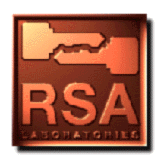

A designated confirmer signature [Cha94] strikes a balance between self-authenticating digital signatures (see Question 38) and zero-knowledge proofs (see Question 107). While the former allows anybody to verify a signature, the latter can only convince one recipient at a time of the authenticity of a given document, and only through interaction with the signer. A designated confirmer signature allows certain designated parties to confirm the authenticity of a document without the need for the signer's input. At the same time, without the aid of either the signer or the designated parties, it is not possible to verify the authenticity of a given document. Chaum developed implementations of designated confirmer signatures with one or more confirmers using RSA digital signatures (see Question 8).